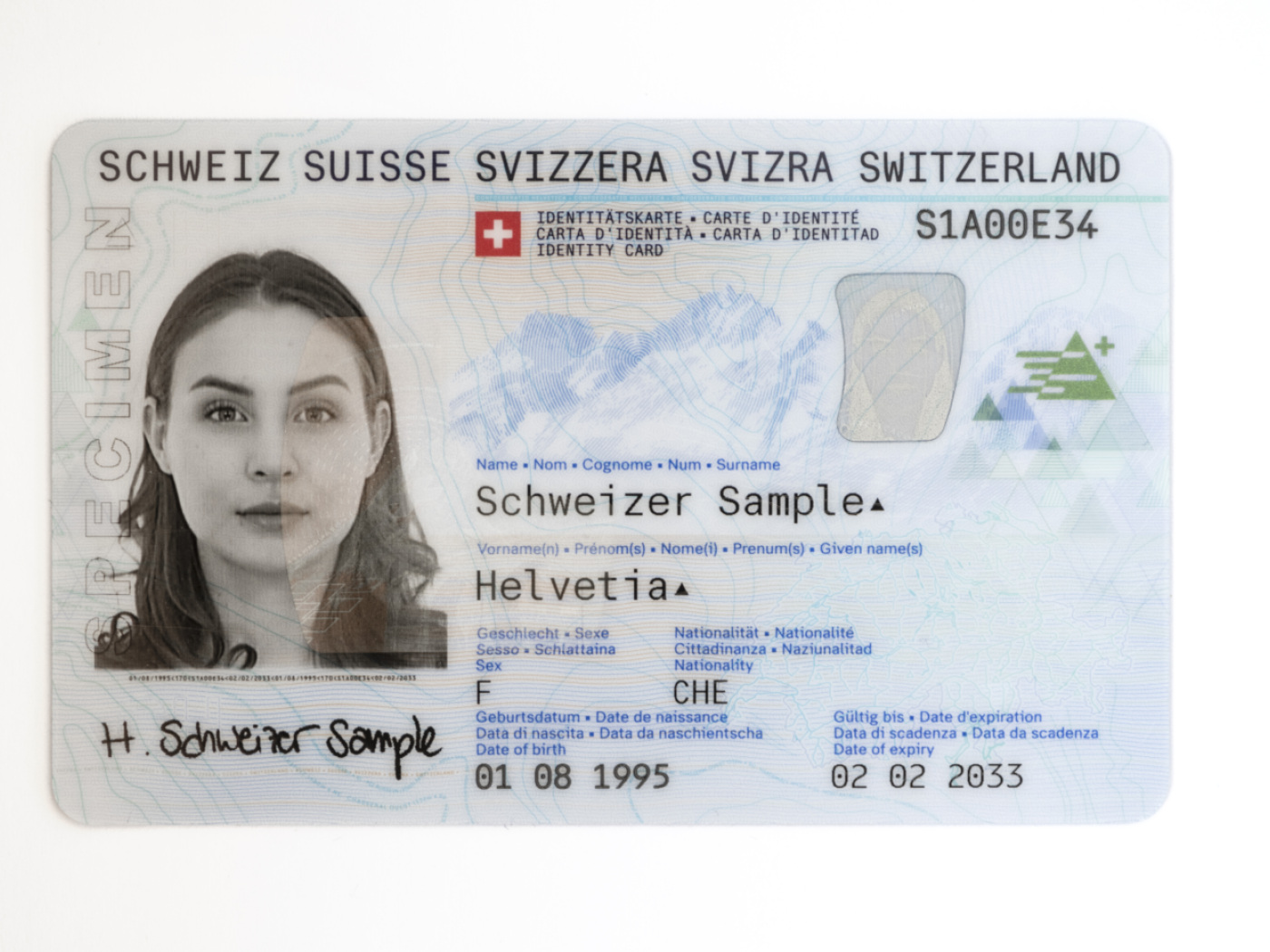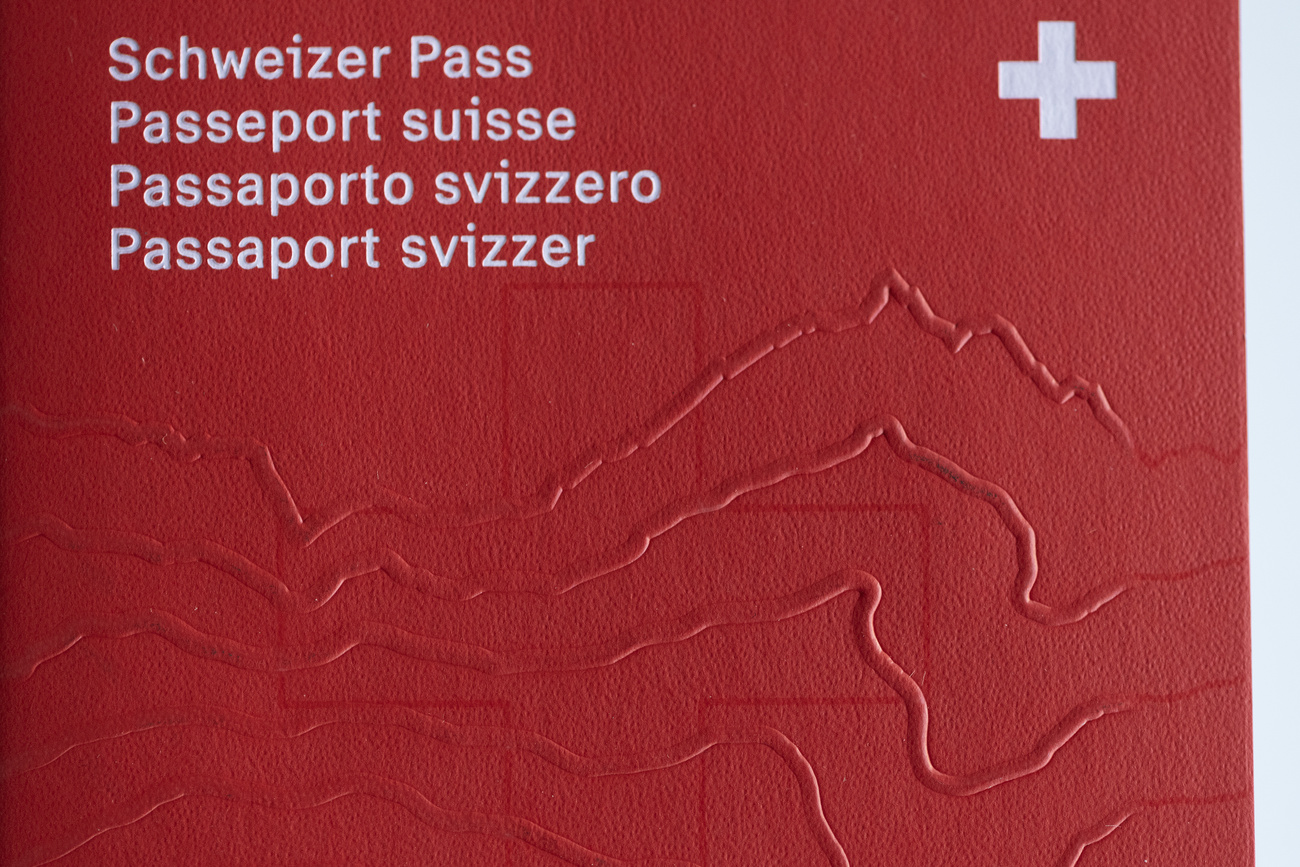
New Swiss biometric ID card planned for 2026

A biometric Swiss identity card (ID) is expected to be available in Switzerland by the end of 2026. The Federal Office of Police and its federal and cantonal partners are working on a new ID card that features a chip.
+Get the most important news from Switzerland in your inbox
The chip with biometric data should protect the identity card even better against misuse, such as counterfeiting, the Federal Office of Police (Fedpol) wrote on Monday. The Swiss passport already has a chip of this type.
The biometric data can only be read when the ID card is physically presented. It is not possible to read the data at distance, Fedpol says. Furthermore, only countries that have equivalent data protection regulations to Switzerland would be authorised to access the fingerprints.

More
Swiss test new e-ID and digital wallet
The change follows decisions taken in the European Union. In 2019, the European Parliament and the Council of the EU adopted a regulation according to which member states will issue biometric ID cards from 2021.
Switzerland, which is not an EU member, must introduce the ID card with chip no later than one year after the revised Agreement on the Free Movement of Persons comes into force.
The biometric ID was part of the agreement package between Switzerland and the EU that has since been initialled. It is expected to be ready by the end of 2026, according to a press release on Monday.

More
Golden passport? Certain groups struggle to obtain Swiss citizenship, study shows
Non-biometric ID cards issued before then will remain valid for travelling to the EU until their expiry date, i.e. for adults for up to ten years. Accordingly, Fedpol recommends biometric ID cards for travelling to other EU countries. Travelling to the EU is also possible with biometric passports.
If you only want to use the ID to identify yourself in Switzerland, you can still have a non-biometric version issued.
Translated from German by DeepL/sb
We select the most relevant news for an international audience and use automatic translation tools to translate them into English. A journalist then reviews the translation for clarity and accuracy before publication.
Providing you with automatically translated news gives us the time to write more in-depth articles. The news stories we select have been written and carefully fact-checked by an external editorial team from news agencies such as Bloomberg or Keystone.
If you have any questions about how we work, write to us at english@swissinfo.ch

In compliance with the JTI standards
More: SWI swissinfo.ch certified by the Journalism Trust Initiative





























You can find an overview of ongoing debates with our journalists here . Please join us!
If you want to start a conversation about a topic raised in this article or want to report factual errors, email us at english@swissinfo.ch.